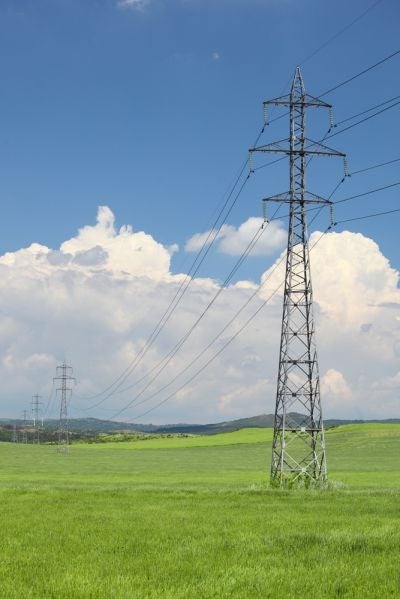Your support helps us to tell the story
From reproductive rights to climate change to Big Tech, The Independent is on the ground when the story is developing. Whether it's investigating the financials of Elon Musk's pro-Trump PAC or producing our latest documentary, 'The A Word', which shines a light on the American women fighting for reproductive rights, we know how important it is to parse out the facts from the messaging.
At such a critical moment in US history, we need reporters on the ground. Your donation allows us to keep sending journalists to speak to both sides of the story.
The Independent is trusted by Americans across the entire political spectrum. And unlike many other quality news outlets, we choose not to lock Americans out of our reporting and analysis with paywalls. We believe quality journalism should be available to everyone, paid for by those who can afford it.
Your support makes all the difference.While the Americans and Chinese are positive about smart grids, Europeans and Australians remain more skeptical despite the environmental benefits of the new technology.
Smart grids are power systems which deliver electricity from suppliers to consumers, much like conventional power systems. However smart grids utilize two-way digital technologies in order to reduce electricity consumption and increase efficiency of use; for example, a smart grid using a smart meter could tell a householder the best time to turn on an energy-consuming home appliance such as a washing machine. This would allow the user to avoid periods of high energy demand and take pressure off the power grid. Smart grids also use different power lines than traditional systems in order to minimize energy loss.
Electricity monitors such as smart meters could also be used to provide information about power consumption relevant to climate change.
Energy-efficient smart grids would need less power and release fewer CO2 emissions into the atmosphere. General Electric has an interactive website showing the relationship between the percentages of US homes with a smart meter and CO2 emissions.
However international consumer opinion is divided on the issue and in particular on smart meters - while some support the environmental benefits others struggle to trust the electricity companies.
A new survey published July 22 by American power company General Electric shows that overall 88 percent of American consumers trust the smart grid and agree that "money spent on making capital improvements to today's energy infrastructure is necessary." A survey by Smart Grid Observer found that 41 percent of Chinese are also positive about the technology and support its implementation.
However 70 percent of British households claim they would ignore any information provided by smart meters, while only 10 percent of respondents in Germany, and 16 percent in Sweden would trust the electrical companies and smart meters. There has also been friction in Australia between residents and electrical companies over the installation of the meters.
The European Union predicts an 80 percent Europe-wide rollout for smart meters by 2020.
Research and consulting company ZPryme released a report in February of this year detailing the top ten countries by investment in smart grid technology. China's number one status was assured after heavy investment in smart grid technology to offset high predicted future power demands.
1. China $7,323 (US millions)
2. US $7,092
3. Japan $849
4. South Korea $825
5. Spain $807
6. Germany $397
7. Australia $360
8. UK $290
9. France $265
10. Brazil $204

Join our commenting forum
Join thought-provoking conversations, follow other Independent readers and see their replies
Comments